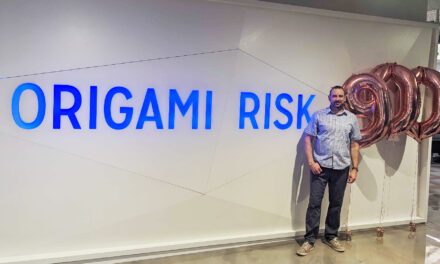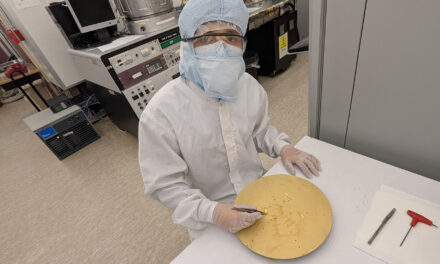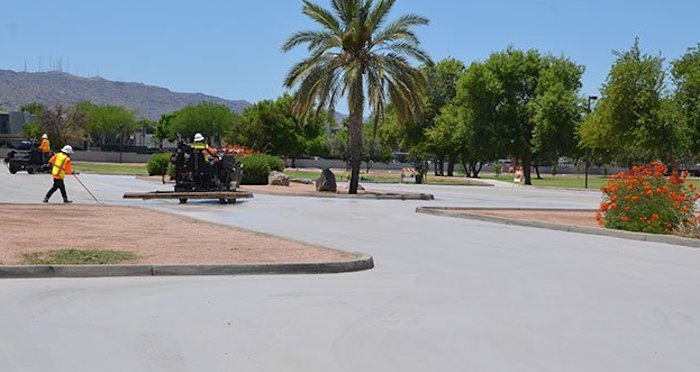
Efforts to cool Phoenix include pale pavement coating to reflect sunlight
With much of its ground surface covered in concrete, asphalt and similar pavement materials, Phoenix offers a prime example of the urban heat island effect — which produces persistent and uncomfortably high temperatures in the metropolitan area, especially in summer. The city is now embarking on a Cool Pavement Pilot Program to attempt to prevent the heat buildup on streets and other paved expanses. Experts in ASU’s Urban Climate Research Center, including Fulton Schools Assistance Professor Ariane Middel, are among engineering and science consultants for the project. Reducing the heat buildup would also help to save money on electric bills and cut down on air pollution from greenhouse gas emissions, Middel says. The articles was also published in the Daily Independent.
See Also: How Reflective Paint Can Combat The Urban Heat Island Effect, KJZZ News (NPR), July 24 (an interviewwith Ariane Middel)



































